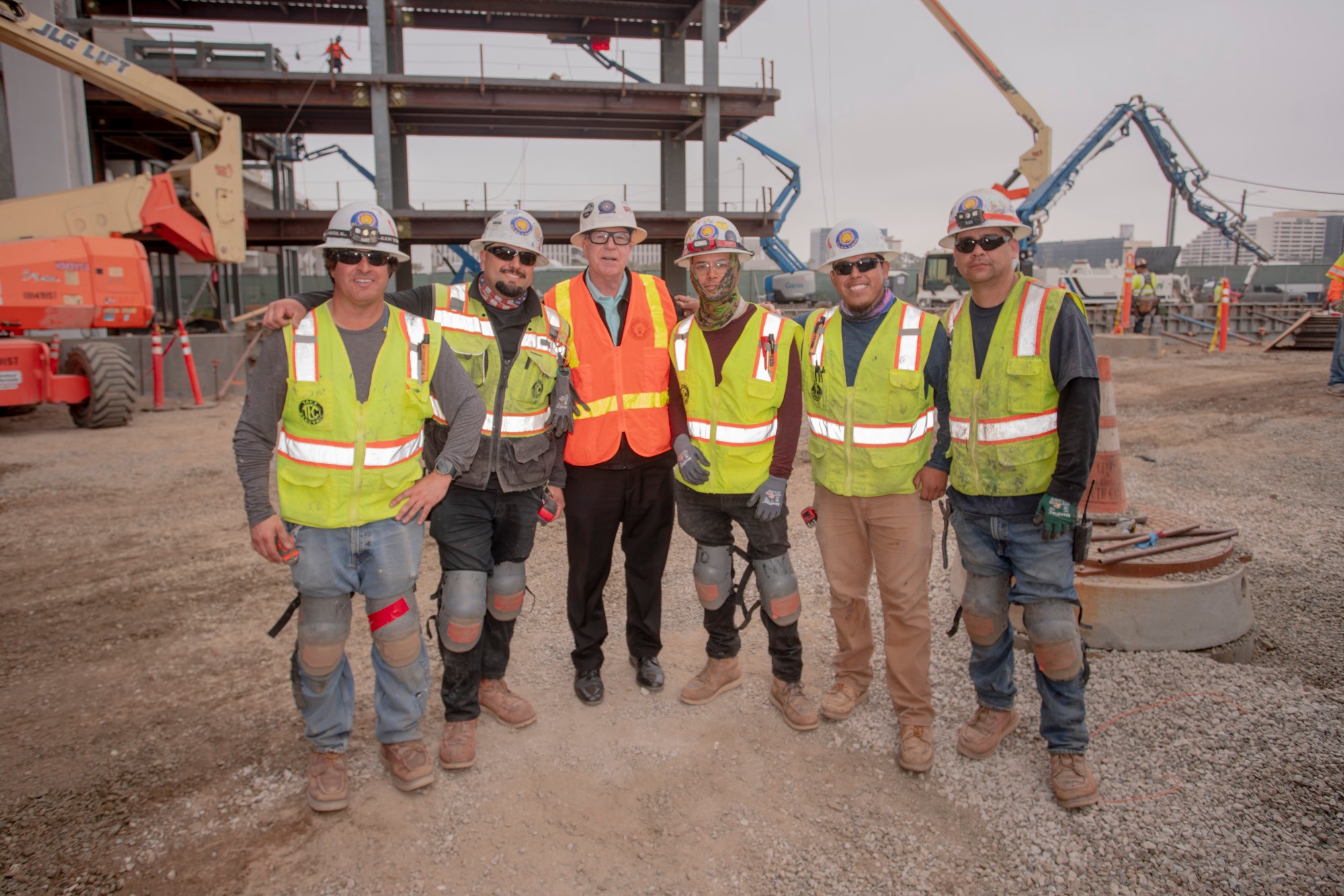The most sweeping updates to federal prevailing wage law in 40 years are now on the books, meaning more money in the pockets of IBEW members and other construction workers on federal projects.
IBEW leaders applauded the improvements to the badly eroded 1931 Davis-Bacon Act, which the Department of Labor finalized in August after 16 months of regulatory review.
“For the past 40 years, a single low-wage contractor could depress wage rates on federal contracts,” International President Kenneth W. Cooper said, pointing to assaults on the law in the 1980s that weakened its power to ensure that federally funded projects support good-paying jobs for local workers.
“The final rule reverses the Reagan-era changes,” he said. “It will allow construction workers to gain ground they lost, increasing the wages of millions and preventing low-road contractors from undercutting the workforce.”
The updates apply to tens of billions of dollars in federal and federally assisted construction spending each year, projects that are multiplying under President Joe Biden due to the $1.2 trillion Bipartisan Infrastructure Law, the $550 billion Inflation Reduction Act, and the $280 billion CHIPS and Science Act.
“Modernizing the Davis-Bacon and Related Acts is key to making sure that the jobs being created under the Biden-Harris administration’s Investing in America agenda are good jobs, and that workers get the fair wages and benefits they deserve on federally funded constructions projects across the nation,” said acting Secretary of Labor Julie Su.
“This updated rule will create pathways to the middle class for more families and help level the playing field for high-road employers,” she said. “Companies that exploit their workers, or don’t pay workers fairly, should never have a competitive advantage.”
- Elements of the revitalized law include:
- New efficiencies to help ensure that prevailing wage rates keep up with actual wages.
- Returning to the definition of “prevailing wage” used from 1935 to 1983.
- New efficiencies to help ensure that prevailing wage rates keep up with actual wages.
- Periodic updates to prevailing wage rates to address out-of-date wage levels.
- Broader authority to adopt state or local wage determinations when certain criteria are met.
- Updating the regulatory language to better reflect modern construction practices.
- Strengthening worker protections and enforcement, including anti-retaliation provisions.
The changes were published in the Federal Register on Aug. 23 and will be effective Oct. 23. The DOL has scheduled online seminars at 1 p.m. on Sept. 13 and Sept. 14 to discuss the new rules and compliance issues with contractors, unions and other stakeholders. Click here for a news release and link to sign up.
Cooper encouraged local officers and staff to participate. “We have to know what the rules are in order to make sure our employers are complying and know what steps we need to take if they’re not.”
He stressed the urgency, given the hundreds of billions of public and private dollars pouring into infrastructure projects, clean energy, advanced manufacturing plants and more.
“The timing of the new rule is especially significant, given the Biden-Harris administration’s massive investments and the public-private partnerships they are spurring,” Cooper said. “We’re talking about hundreds of thousands of jobs for IBEW members that are subject to prevailing wage law.”
He said undoing the damage done to the wage rules 40 years ago is emblematic of Biden’s promise to be the most pro-union president in American history.
“President Biden is proving once again that union members are at the heart of his efforts to rebuild America by restoring the middle class.” Cooper said. “And his record-setting job-creation numbers prove that he is succeeding beyond all expectations.”
This post originally appeared on the IBEW Media Center page on ibew.org.



